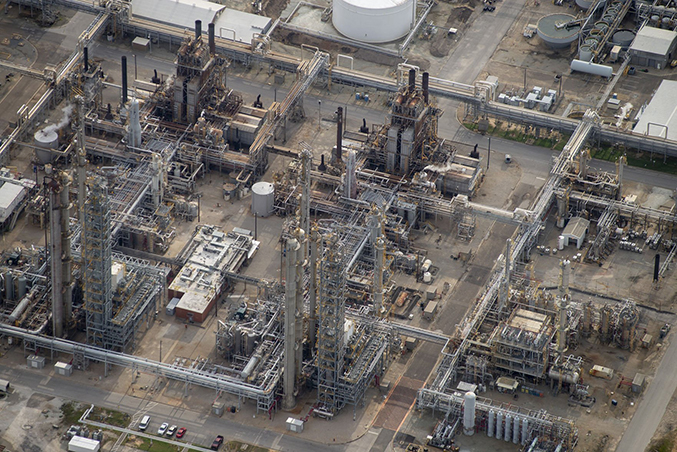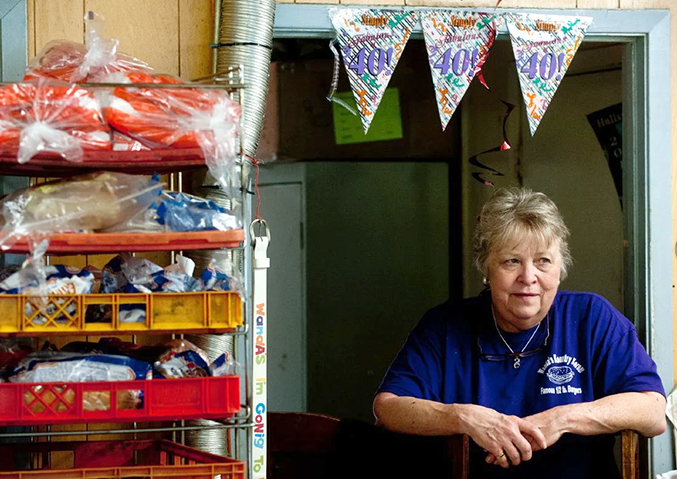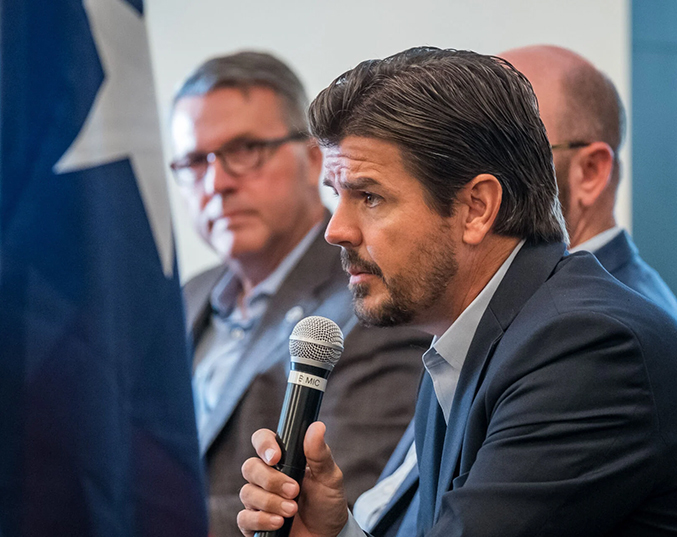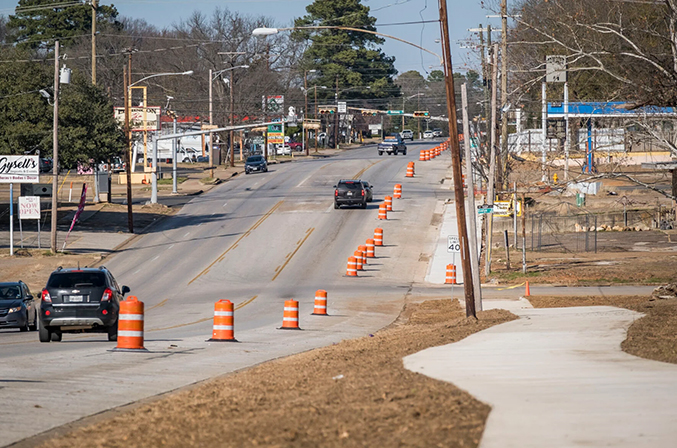Trump grants Eastman Chemical a 2-year exemption from pollution reduction law
Published 10:55 pm Sunday, July 27, 2025
President Donald Trump has granted Eastman Chemical Co. a two-year exemption from an environmental regulation requiring companies to reduce their carcinogenic emissions.
Activists say the exemption could threaten the health of people living near facilities such as the Eastman plant just outside Longview. Trump and chemical development leaders say the regulation is burdensome and that the technology required for compliance isn’t readily available.
Eastman’s Longview-area facility is one of 49 across the nation that Trump has allowed to forgo the regulation’s requirements until 2028. The law, known as the HON Rule, was implemented by the Environmental Protection Agency in 2024 and was set to take effect in 2026.
Trending
Now, Eastman and other companies have an additional two years to comply. The exemption does not apply to other environmental regulations by which the company must abide. Trump signed the exemption proclamation July 17.
The news comes as several East Texas residents have filed a lawsuit against the company, claiming that the ethylene oxide it has released into the atmosphere around Longview gave them cancer.
The HON Rule aims to reduce emissions of cancer-causing gasses, including ethylene oxide, which is used to manufacture plastics and antifreeze and is used to sterilize medical equipment – up to half of the medical equipment in the country, according to some estimates. However, there are other ways to sterilize such equipment.
The rule is geared at reducing the risk of cancer for about 10 million Americans living near ethylene oxide-producing facilities by imposing stricter pollution control measures and requiring facilities to monitor air quality. The rule is expected to reduce ethylene oxide emissions by 80%, according to Public Health Watch.
Eastman is the ninth-largest emitter of ethylene oxide in the country as of 2023, according to Public Health Watch, a nonpartisan investigative news outlet reporting on health and wellness in America. The nation has 17 facilities, mostly in Texas and Louisiana, that produce ethylene oxide, according to the American Chemistry Council.
Ethylene oxide is a known carcinogen that people are exposed to primarily through ingestion and inhalation, according to the National Cancer Institute, and people working at or living near facilities that produce it may be exposed to it. The EPA states that long-term exposure to the gas can increase a person’s risk of developing various cancers.
Trending
Environmental protection organizations say the exemption could negatively impact the health of people living near production sites. Neil Carman, director of clean air for the Sierra Club’s Lone Star Chapter, said Eastman’s exemption “raises serious concerns for both public health and regulatory integrity.”
“The HON Rule regulates emissions of hazardous organic air pollutants, including known carcinogens and other toxic chemicals,” Carman said. “Allowing Eastman to bypass these requirements increases the risk of exposure for nearby residents and sets a dangerous precedent of letting major polluters off the hook.”
In 2021, news outlet ProPublica classified Longview as a cancer “hot spot” and reported that Eastman is the top emitter of carcinogens in the area. A map created by the Environmental Defense Fund also shows the reach of petrochemical pollution from Eastman’s Longview-area facility and lists ethylene oxide as a top driver of cancer risk.
Chemical manufacturers say the risk of cancer from ethylene oxide is lower than some sources say. The American Chemistry Council has argued that the EPA’s data on cancer risks is flawed, and the Texas Commission on Environmental Quality conducted a peer-reviewed analysis that found the risk of cancer from the chemical to be 4,000 times lower than the EPA’s 2016 conclusion, according to the chemistry council.
Chemical manufacturers say the requirements in the HON Rule had an “unworkable timeline,” according to a July 18 statement from the American Chemistry Council, which advocates for chemical companies. The rule would jeopardize production of a chemical essential to “national security interests, including public health and economic security, as they are used for countless everyday products and critical industries such as agriculture, healthcare, semiconductor manufacturing, and more,” the statement read.
Jennifer Heronema, a spokeswoman for Eastman, said in a statement that the exemption will give Eastman and other companies “the much-needed time to determine how best to comply with this rule, particularly in our case where there is currently no known technology available to meet certain requirements.”
“Eastman takes its commitment to the safety of its employees, communities and the environment very seriously,” Heronema said. “We comply with all applicable regulations governing the handling and use of materials at our Longview plant and in many cases, we exceed those requirements with our own internal standards.”
Heronema did not answer the News-Journal’s questions about whether the company has air pollution monitoring systems in place at the facility or how the public can keep track of the amount of pollution emitted from the facility.
According to data from EPA, Eastman released more than 315,000 pounds of ethylene oxide into the environment between 1998 and 2023. The amount of ethylene oxide released has fluctuated in the past two decades but generally has declined: The company released nearly 21,000 pounds in 2008 and 6,133 in 2023.
Trump’s proclamation granting the exemptions states that the regulation imposes substantial burdens on companies that already have to follow stringent regulations.
“Many of the testing and monitoring requirements outlined in the HON Rule rely on technologies that are not practically available, not demonstrated at the necessary scale, or cannot be implemented safely or consistently under real-world conditions,” the proclamation reads.
The proclamation did not explicitly state that the rule would have strong negative impacts on chemical companies, but it did say that any disruptions to those companies could weaken the nation’s supply chains, industrial strength and emergency readiness.
Carman, the Sierra Club official, said the exemption “means no penalties and no accountability” for Eastman under the HON Rule.
“Communities living in the shadow of this facility already bear a disproportionate burden of pollution,” he said. “Weakening protections only adds to that burden. Texans deserve clean, safe air to breathe.”









